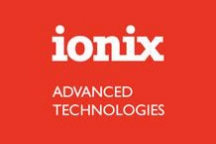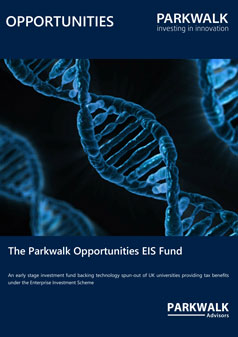|
We are delighted to announce that Parkwalk has closed an investment in Ionix, a Leeds spin-out that.....
|
|
|||||
 |
|
|||||
|
Dear , The market for piezo technologies - harnessing piezoceramic materials’ capacity to transform pressure into power or, alternatively, power into pressure - is already broad and growing. The piezoelectric market is well established but applications are limited by the properties of the materials currently in use. Piezoceramic materials are all around us, powering cell phones, diesel fuel injectors, acoustic guitar pickups, grill igniters, medical ultrasound scanners, vibration sensors, printers, and musical greeting cards. Despite their ubiquitous nature, the piezoelectric materials at the heart of these sensors and actuators have seen little innovation in decades. Conversely the environments that these devices are required to serve in are becoming ever more demanding, with temperatures being driven higher and operating times extending to increase efficiencies and lifetimes, whilst the world demands continuous 24/7 operation and zero system failures. Ionix Advanced Technologies was spun-out of the University of Leeds in 2011. The company has developed a set of proprietary extreme-environment devices (modifiable to suit different applications), based on its novel piezoceramic materials, which enable the protection of high value industrial assets operating in extreme temperature conditions. Parkwalk initially invested in Ionix in 2015, alongside IP Group and the University of Leeds. Since then we have been pleased with both the technical and commercial progress of the company. The Technology Ionix’s core device technology is based on a multi-component piezoceramic formulation, with derived materials that operate at temperatures up to 400°C and beyond, up to 200°C higher than the industry standard PZT can tolerate. The Ionix materials are far tougher than PZT and can generate twice the piezoelectric strain, a measure of the movement that can be generated by the material. The materials can be transformed into a wide range of solid shapes and formats allowing use in many different potential applications. As a result, Ionix is at the forefront of the largest industrial development in piezoelectric materials in decades. The novel materials form the key component inside a measurement or operating device which can operate in extreme environments (e.g. an ultrasonic sensor). These typically work by emitting ultrasonic sound waves and receiving the reflected energy. This is then converted into an electrical output that can be collected, analysed and displayed to provide high value information to a customer. An example of this would be monitoring thickness or measuring cracks in a pipe by assessing the time for a signal to return and evaluating the nature of the reflected energy. The Market The past 10 years has seen accelerating growth in the use of installed and continuous sensing in standard operating environments in a range of industrial applications covering the Process & Plant, Energy/Nuclear, Oil & Gas, Automotive and Aerospace sectors. These markets are driven by the needs of industry for continuous and remote monitoring of critical plant assets, a function of the “Internet of Things IoT” revolution, as the infrastructure of the information society spreads across the industrial world. Similar needs for high accuracy and continuous monitoring exists in industrial applications operating at higher temperatures and pressures where current technology is not adapted for operation. Current methods for providing high accuracy and continuous measurement relies on compromise technical solutions and a continued use of periodic manned inspections. Industry is demanding change as it seeks to reduce operating and employee risk, drive down costs while gaining higher quality data on the performance of critical assets. Ionix’s technology can and will address these opportunities; enabling continuous monitoring of critical assets with major benefits to end operators covering productivity enhancement, risk reduction and cost savings. Ionix has identified target markets with a clear value proposition to customers, and has sought to focus on a set of key market applications where the market timing is ideal, the technology is well-adapted and strong client traction has been achieved. In Condition Monitoring, where continuous operation is the ultimate goal requiring robust long-term device solutions, the value proposition is based on reducing productivity loss, minimising operating risk, extending operating time and increasing safety. In Process Control, operators can reduce operating cost (primarily via energy savings), decrease maintenance cost and reduce outage which increases capacity utilisation. In Ceramics Supply, the Company aims to supply its proprietary HPZ material for use by selected customers in non-competing markets where the properties of HPZ can be applied to real customer problems. The Model Strategically the company is positioning itself as a key technology component supplier, offering sensors that can fit with the systems of a wide range of partners (major system integrators and/or service providers), enabling a rapid expansion of the market for extreme environment sensing. The revenue model in each direct application is to sell the device or material to customers, following a paid-for development programme leading to initial products, and subsequently generating recurring revenues through ongoing/replacement sales and consulting support. In non-core sectors, revenues will be extracted through suitable licencing deals where appropriate. Longer-term, the company will seek to develop a fully-integrated system generating recurring revenue through access to, and interpretation of, data from its devices. Progress since the last investment Over the last two years the Company has progressed technically and commercially in both the ceramic material and devices arenas. In ceramics, batch sizes and effective yields have been transformed significantly for the better. The team is now organised along professional production lines and secure supply chains have been established. Ionix recently achieved ISO 9001 status, a notable achievement that will underpin its plan to supply into a range of blue-chip clients. In devices, the HotSenseTM extreme environment device platform has been created and trademarked, the 1st commercial ultrasonic probe launched for industrial condition monitoring following an 18-month programme of prototype validation, now successfully completed by a variety of major industry players. The devices development team has also been assembled with key ultrasonic skills added to the company. The Team Ian Williamson, Non-Executive Chairman Ian Williamson is an investing chairman-designate expected to join the board on completion of the funding round. Ian previously served as the CEO of Carclo plc - a medical plastics and technology company - from 1995 to 2013. Dr David Astles, Chief Executive Officer David has been CEO of Ionix since 2014. David is a professional business leader with wide experience gained in a major blue chip (Shell) and leading small company start-ups. He has a strong international sales and marketing background with a track-record of launching new products and technology in global markets. Dr Tim Comyn, Technology Founder and Technical Director Tim Comyn has been working on the development of new piezoelectric materials for the past 15 years, most of which has been industrially funded. Tim is now Technical Director for Ionix and runs the ceramics development stream. Dr Tim Stevenson, Technology Founder and Development Director Senior Research Fellow at the Institute for Materials Research, University of Leeds, UK since completing his Ph.D in Magnetic Ferroelectric Ceramics in 2010. He holds a M.Eng degree in Materials Science and Engineering, and was awarded Gold and the title of "Early Research Career Engineer" at Westminster in 2011 for impact on UK research. Tim is now Development Director for Ionix and runs the device development stream. The Investment Case This is a highly professional team that seem to be achieving its ambitions both technically and commercially. Since our first investment production obstacles have been tenaciously overcome and potentially valuable relationships fostered. The Company is now poised to exploit these advances and establish itself as a key player in its chosen markets. Interestingly, there has been consistent M&A activity in this space over the last few years. Notably, Permasense, the Imperial College spin-out was acquired by Emerson Electric in 2016 and, in May this year, CTS Corporation announced the acquisition of Danish company Noliac A/S; a designer and manufacturer of tape cast and bulk piezoelectric components, sensors and transducers for the aerospace and defence industries. CTS, listed on NYSE, is a leading designer and manufacturer of sensors, actuators and electronic components to OEMs in the aerospace, communications, defence, industrial, information technology, medical and transportation markets. Although not eye-watering, the price multiples of these acquisitions are believed to be encouraging and support our continued interest in Ionix. |
||
|
|||||
|
||
|
|||||

